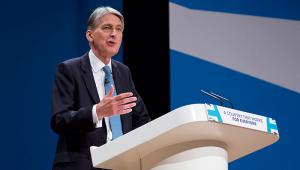Jenkin, a prominent Leave campaigner, chairs the public administration and constitutional affairs select committee.
Yesterday, he said the committee had been asked by Cabinet Office minister Oliver Letwin, who is leading a Brexit unit in Whitehall, to set out what skills the civil service will need.
“My committee has been asked by Oliver Letwin, and I’m having meetings with officials tomorrow, to draw up a short paper, on three or four sides of paper, to prompt some thinking in Whitehall about what we need to do to enable this process to happen as swiftly and as efficiently as possible.”
This paper would likely be sent to Letwin next week, Jenkin said at an event at the Institute for Government, and would consider the need to boost expertise in areas such as trade negotiations.
“You will be familiar with the shortage of skill, all the extra things that departments are going to have to do,” he stated.
“Should we have a call up of reserves, if you like, of recently retired civil servants and others who have left the civil service to come back and help. “We’re gong to need lots of people to do lots of things and have capacity to do things.”
He added that “leave means leave” and urged the political establishment to not second-guess the result but instead develop a plan.
“If we have years of this kind of uncertainty, we really will wreck the economy,” he said.
“The only reason the economy is looking a little bit rocky at the moment is that no-one has got a plan. If there was direction and leadership and a plan, we need to move quickly and move to a situation where we can leave the European Union quickly.”
Also speaking at the event, Melanie Dawes, permanent secretary at the Department for Communities and Local Government and chair of the civil service people committee, said the work for Brexit had started.
The civil service was using the time until a new prime minster was appointed in September to set out what she called “the big choices and big decisions” that need to be taken. This would help the new political team hit the ground running, she stated.
Oliver Robbins, currently second permanent secretary in the Home Office, was appointed this week to lead the European and Global Issues Secretariat as part of the negotiations.
Dawes said Robbins was already considering the scale of resources needed in the unit and what would stay in departments.
“The work has started,” she said. “This is, at least to start with a classic Cabinet Office job. The Cabinet Office’s role is a combination of coordination, which lets departments get on with the other work that we need to get on with, but also some very strong centralisation where necessary to support ultimately, the prime minister.”
Dawes acknowledged the civil service would need more people in certain roles, such as trade negotiators and lawyers.
“If there is one opportunity that I think we have here, it is for a more collective sense of Whitehall, in the civil service certainly,” she added.
“What I think we need to get to in our leadership across the civil service is a sense that we work in a more concerted way, a more conscious way – sharing our resources when necessary, certainly sharing our allocations of top talent and acting more collectively to move things around as we need to.”




















